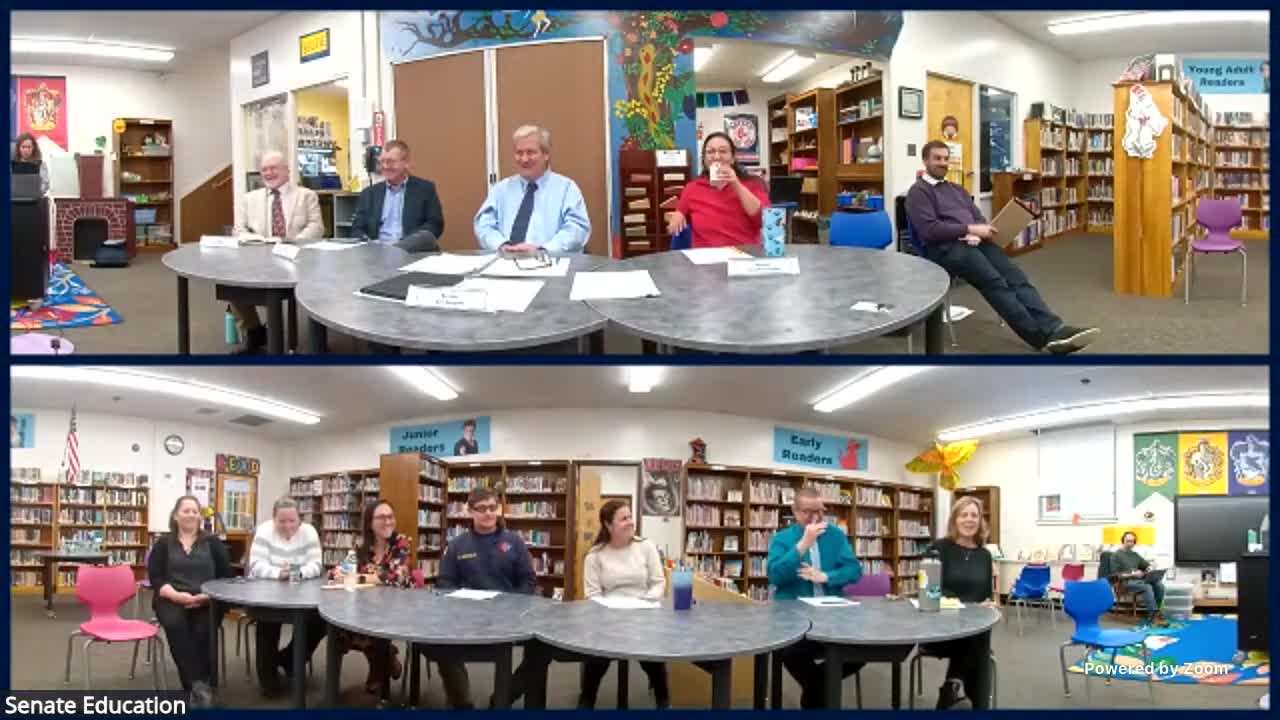Small by necessity: Canaan teachers tell Senate panel limited resources and creative partnerships sustain students
Get AI-powered insights, summaries, and transcripts
Subscribe
Summary
Teachers and staff at Canaan School told the Senate Education Committee that limited local health and enrichment services, shrinking grant support and cross‑border rules strain program delivery, even as after‑school, CTE and community partnerships provide crucial opportunities.
Members of the Vermont Senate Education Committee held a teacher panel at Canaan School to hear how a small, rural K–12 school delivers education with limited local resources. Committee chair Seth Bongertz said the visits are intended to surface ground‑level challenges and innovations that do not always show up in testimony from superintendents.
School nurse Mika Primo told the committee that medical and mental‑health services are scarce locally, forcing families to travel to Newport for most specialized care. "We are very remote," she said. Primo described an annual dental outreach from Island Pond Health Center that enrolls about 30 students and provides cleanings and X‑rays on site. She also said two counselors in the building are funded through a mix of community‑schools grants, district CFP funds and Medicaid.
Teachers described multiple roles and heavy reliance on grant funding for interventionists and enrichment. "We are small but lightened," Primo said, summarizing the school’s approach to providing broad services with limited personnel. Kindergarten teacher Melissa Norsworthy said students are entering school with weaker fine‑motor and speech skills and noted occupational‑therapy coverage has been reduced from 1.5 days to 1 day per week.
Staff and teachers highlighted the value of a K–12 campus for cross‑age mentoring and for hands‑on programs. After‑school and summer programs, which Primo said serve about 74 students and operate Monday through Thursday, offer activities from woodworking and biking to 'Helping Hands' peer support. CTE and community partnerships — with local businesses, the fire department and nearby colleges — supply vocational learning that the district could not afford alone.
Panelists also warned that rigid application of class‑size or funding rules could harm very small communities. Todd Nichols, who runs the district's CTE emergency‑services program, invoked the state’s Brigham precedent on substantially equal educational opportunity to argue for policy flexibility for "small by necessity" schools. The committee closed by asking whether statutory exceptions or targeted funding could preserve local programs that are central to the community.
The hearing produced no formal action; committee members said they would carry the testimony back to Montpelier as they consider statewide education policy.
